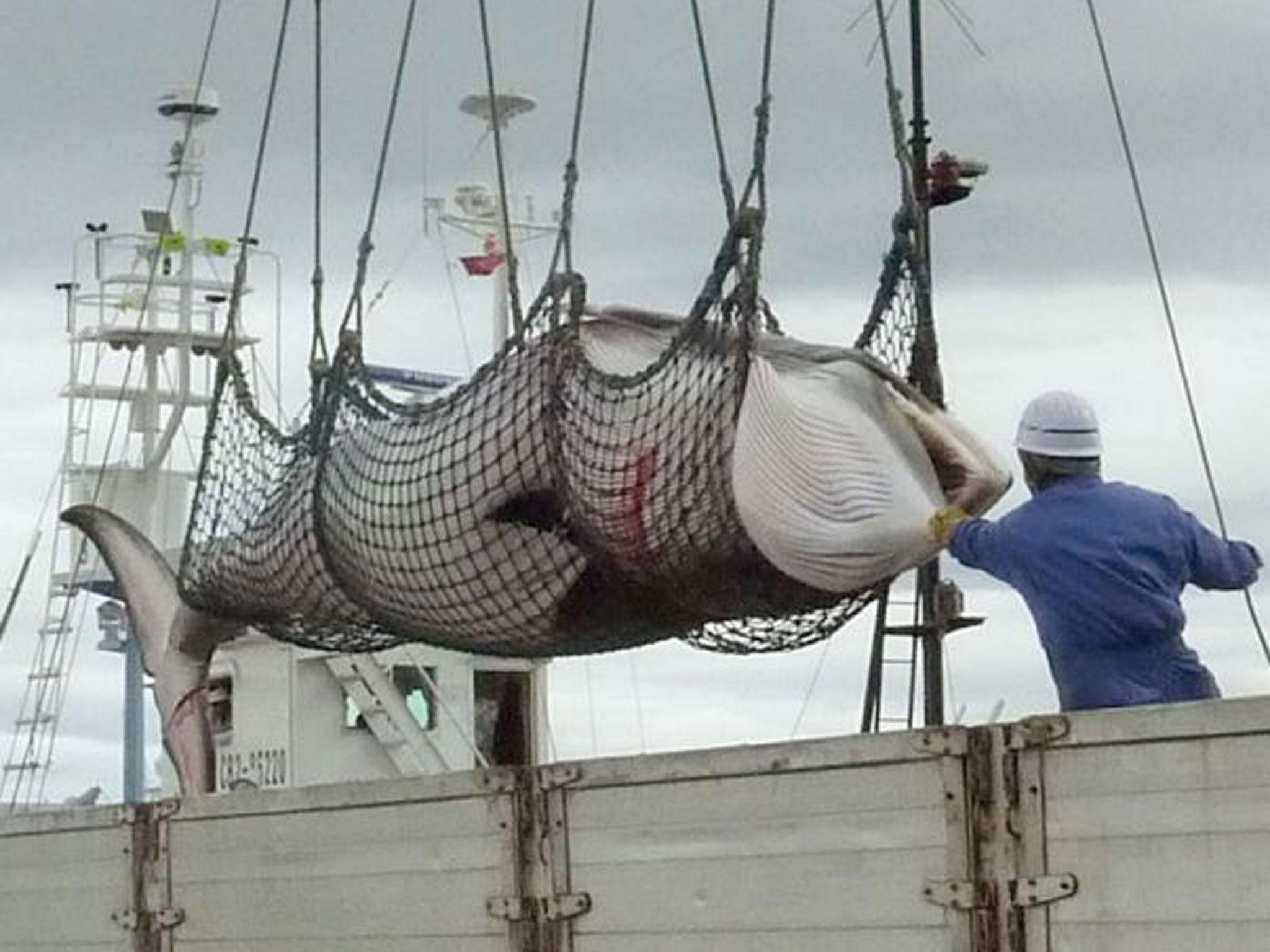Japan kills 200 pregnant whales
Four ships returned from a 100-day expedition this week as part of a project aiming to conduct scientific whaling activities

Your support helps us to tell the story
From reproductive rights to climate change to Big Tech, The Independent is on the ground when the story is developing. Whether it's investigating the financials of Elon Musk's pro-Trump PAC or producing our latest documentary, 'The A Word', which shines a light on the American women fighting for reproductive rights, we know how important it is to parse out the facts from the messaging.
At such a critical moment in US history, we need reporters on the ground. Your donation allows us to keep sending journalists to speak to both sides of the story.
The Independent is trusted by Americans across the entire political spectrum. And unlike many other quality news outlets, we choose not to lock Americans out of our reporting and analysis with paywalls. We believe quality journalism should be available to everyone, paid for by those who can afford it.
Your support makes all the difference.Japan has killed more than 200 pregnant whales, it has been reported.
According to the country’s Institute for Cetacean Research, 333 minke whales have been killed including more than 200 pregnant females as part of this year’s Antarctic whale hunt, the National Geographic reports.
It said that four ships returned from a 100-day expedition this week as part of a project aiming to conduct 'scientific' whaling activities.
The legitimacy of Japan's programme has been challenged previously by the International Court of Justice in 2014.
Commercial whaling activities have been banned by the International Whaling Commission since 1986, although an exemption remains for scientific studies.
Following the court’s ruling, Japan stopped its whaling activities for a brief period, but started again in 2015.
It changed its programme to make it more scientific and lowered its quota of whales by two-thirds – but the International Whaling Commission has not reached a consensus on whether it has met requirements, the National Geographic reports.
The majority of the whales killed in the current expedition were females because it is now breeding time in the southern seas.
Join our commenting forum
Join thought-provoking conversations, follow other Independent readers and see their replies
Comments